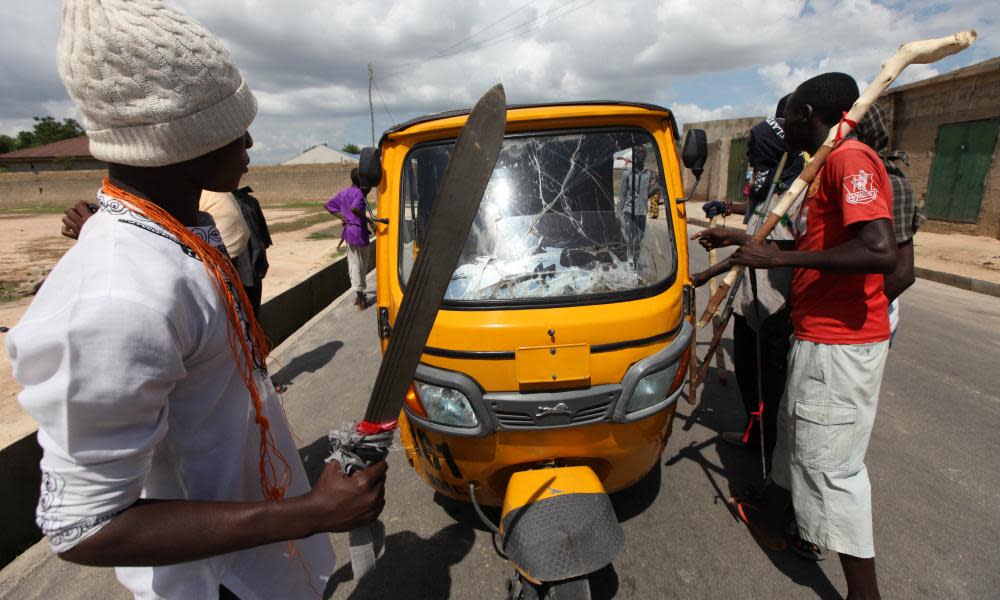UN brokers deal to end use of children in Nigeria's battle with Boko Haram

A landmark agreement between the UN and the Civilian Joint Task Force will end the use of children in the conflict against Boko Haram in north-east Nigeria.
According to the UN, between October 2015 and August 2017, more than 360 children were used by the 23,000-strong armed taskforce, some as young as nine. The concord, reached after a year of negotiations led by the UN, will draw a line under the enlistment of children by the group.
Minors have been recruited by Boko Haram since its inception in 2013, often for search operations, to guard outposts and to perform night patrols.
The Civilian Joint Task Force (CJTF) is formed largely from vigilante groups in response to the Boko Haram insurgency. The force protects communities in areas poorly guarded by the military, but has been accused of rape and human rights abuses by Human Rights Watch and other rights organisations.
Mohamed Fall, a Unicef representative in Nigeria, said: “We have seen too many childhoods destroyed by the crisis in the north-east. Today’s agreement is an important milestone for child protection and paves the way for a brighter future for children caught up in the conflict.”
Under an action plan, implemented as part of the agreement with the Borno state government and Nigerian state authorities, children will receive psycho-social support and undertake community reintegration programmes, and attempts will be made to reunite them with their families.
Jibrin Gunda, the legal adviser for the CJTF, said the agreement was a vital step. “We’ve already started to carry out the action plan we signed with the UN,” he said. “Anyone under the age of 18 will no longer be a part of the CJTF. We are doing our best to make sure we are on the right side of human rights codes.”
The special representative of the secretary-general for children and armed conflict, Virginia Gamba, said the deal was a source of hope for children affected by the fighting. “Now that the action plan has been signed, I urge the CJTF to fully implement it in order to end and prevent the recruitment and use of children once and for all.”
A UN report has shown that, since the insurgency began in Nigeria in 2009, more than 8,000 children have been recruited by Boko Haram, with children – especially young girls – increasingly used as suicide bombers.

The report also found that attacks by Boko Haram on communities and security forces had resulted in the deaths of more than 3,900 children. A further 7,300 have been injured.
In the same period, suicide attacks became the second leading cause of child casualties, accounting for more than 1,000 deaths and 2,100 injuries.
In December the Nigerian government claimed to have technically defeated Boko Haram. However, Nigeria’s president, Muhammadu Buhari, said in a state broadcast last month that the group remained a threat after a rise in attacks this year, including the bombing of a market in Maiduguri last month that claimed 27 lives.

 Yahoo News
Yahoo News 
